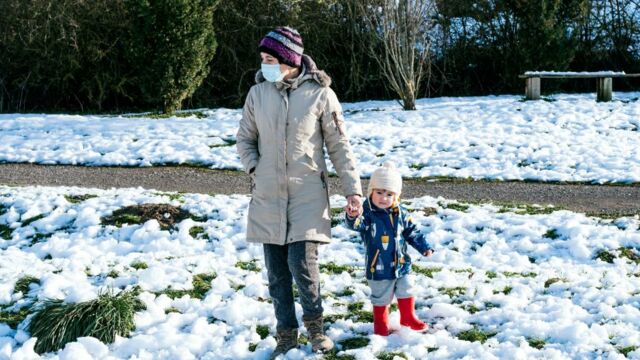The UK still registers about 600+ daily death from Covid-19. After a second wave in the fall, the approach of winter was an added fear to seeing the epidemic form a third wave as temperatures drop. Indeed, there are several physical and immunological arguments that show a greater survivability of various respiratory viruses in winter. The cold allows in particular a greater resistance of the viral particles, which are surrounded by a membrane inside of which proteins protect the viral genome, as explains the epidemiologist Mircea Sofonea:
Discover our latest podcast
If heat can denature these proteins, the cold freezes the reactions and any denaturation is slowed down. The viral particles thus remain in the environment longer.
Diminished natural defenses
Loss of light intensity, poor synthesis of vitamin D... Man is also more vulnerable during this period and the respiratory tracts are less protected. The epidemiologist adds:
With the cold, indoor humidity tends to drop, so the ability to build up mucus and defend against pathogens is reduced, which makes us more vulnerable to respiratory diseases.
Risks still as important in enclosed places
However, according to the results of a study conducted by the Institut Pasteur, the cold encourages the spread of the virus, but only to a certain extent. The virus prefers temperatures between 2 and 6°C, and at a humidity rate in the air between 60 and 80%. Under these conditions, below 10°C, the rate of reproduction of the virus would increase by 0.16 with each lower degree. However, when the thermometer passes below zero, the droplets which carry the virus tend to freeze and fall to the ground before being able to disseminate in the air.
While this good news is true outdoors, the risk remains high in closed places where we tend to be more present in this period. Regular ventilation of the rooms and wearing a mask are therefore still important actions to fight against the spread of the virus.















